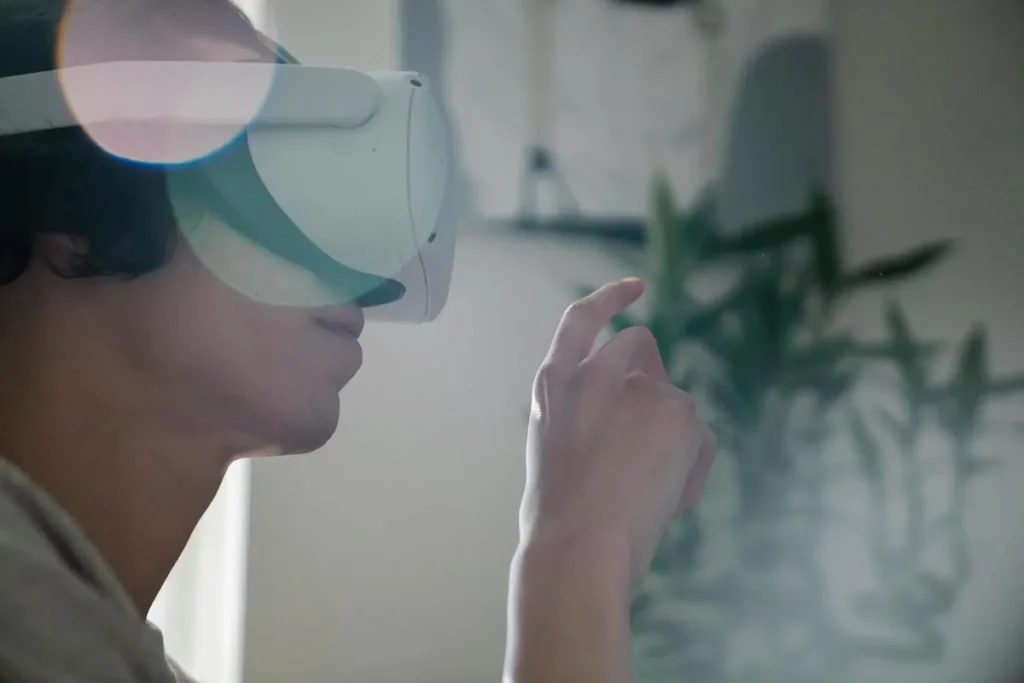
VR is helping to make daunting medical treatments more bearable for patients
Stanley Johnson’s aversion to needles is understandable, especially when faced with the prospect of repeated IV infusions. However, the veteran found an unlikely ally in his Apple Vision Pro and a popular app called Tripp. By immersing himself in calming experiences, such as meditation and soothing soundscapes, he was able to alleviate his anxiety and find solace during what could have been a nerve-wracking ordeal.
Research suggests that VR can indeed ease stress and distract wearers from pain. In a recent study published in the Clinical Journal of Oncology Nursing, 90 patients undergoing chemotherapy at Vanderbilt-Ingram Cancer Center’s infusion clinic were provided with headsets for a 12-minute session during treatment. Half of the participants received headsets while the other half served as the control group.
The results were striking – across the board, those who utilized VR technology experienced a significant reduction in stress levels and reported lower pain levels compared to their counterparts in the control group. Notably, even before and after the sessions, researchers measured heart rates of patients, finding that VR decreased average heart rate by 6.6 beats per minute at the midway check.
Moreover, the study’s authors deliberately chose content with low motion sickness ratings to avoid exacerbating nausea in cancer patients who are already more prone to this condition due to chemotherapy side effects. Consequently, only a few participants reported any measurable cybersickness, and those instances were extremely mild.
The findings of this trial indicate that VR could be an effective tool for medical professionals to use as a distraction mechanism for patients undergoing treatments such as chemotherapy. Not only is the technology accessible to many with costs as low as a few hundred dollars, but it also has the potential to greatly enhance the overall patient experience.
Cody Stansel, one of the study’s authors, emphasizes that VR allows patients to temporarily forget about their medical situation and immerse themselves in an enjoyable experience. This type of escape is invaluable for those struggling with chronic health issues, as they require relief from the discomfort and pain associated with these treatments.
As the study suggests, more research could shed light on VR’s efficacy in addressing higher pain levels or if other types of content would be more suitable for specific situations. Nevertheless, it is clear that VR technology has already demonstrated its potential to alleviate stress and make arduous medical procedures more bearable.
Source: https://www.engadget.com/ar-vr/vr-is-helping-to-make-daunting-medical-treatments-more-bearable-for-patients-161505375.html?src=rss


